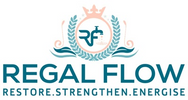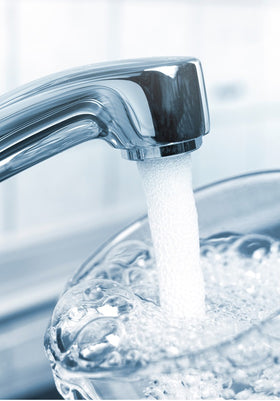
RO Systems in the Food & Beverage Industry: Enhancing Quality and Compliance
Ever sipped coffee that tasted like a swimming pool? Blame bad water. RO systems save the day by purifying water, boosting taste, and ticking all compliance boxes. From brewers to bakers, even countertop dispensers and reverse osmosis make a dream team. In Reverse Osmosis Systems for Commercial & Industrial Applications, we explore why RO is essential for safer, tastier products—and how it supports businesses that rely on water quality.
The Critical Role of Water Quality in Food & Beverage
Impact on Taste, Consistency, and Shelf Life
Water is never just water when you’re in the kitchen. It’s the silent ingredient that can make or break your product. A bakery in London once found its bread tasting slightly sour, only to discover chlorine-heavy tap water was the culprit. Reverse osmosis removes those pesky impurities so flavours pop, textures stay smooth, and batches remain consistent. It’s not magic — it’s just smart water.
Meeting Stringent Regulatory Standards
Rules around water quality aren’t just red tape — they’re safety nets. Whether you’re exporting craft beer to Europe or bottling soft drinks in Manchester, regulations like those from the FDA or EU have sharp teeth. RO systems help tick those boxes by clearing out contaminants like bacteria, heavy metals, and pesticides. It means fewer headaches, fewer fines, and more peace of mind. It’s the invisible insurance policy your products deserve.
How Reverse Osmosis Systems Benefit the Food & Beverage Industry
Removal of Impurities and Contaminants
Think of reverse osmosis as a microscopic nightclub bouncer — only pure water molecules make it past the velvet rope. Nitrates, salts, microbes and chemical nasties get shown the door. The result? Crystal-clear, safe water that elevates the quality of everything from soups to sodas. No odd aftertastes, just the crisp, clean flavour your customers expect.
Ensuring Consistent Water Quality for Production
Water quality from the mains can be a rollercoaster. One day it’s fine, the next it’s heavy with minerals or chlorine. RO systems smooth out those bumps, giving you reliable, stable water every day. Whether you’re brewing lager or blending juices, that consistency keeps your production line calm and your customers happy. Predictable water means predictable results.
Reducing Scale Build-up in Equipment
Limescale isn’t just something you moan about in your kettle at home. In factories, it clogs pipes, wrecks boilers and slows everything down. RO-treated water keeps equipment scale-free, which means fewer breakdowns and lower maintenance costs. Your machines last longer and run smoother. Less fuss, more production.
Meeting Specific Water Quality Requirements for Different Products (e.g., brewing, soft drinks)
Water isn’t one-size-fits-all. A gin distillery in Cornwall, for example, might want ultra-pure water to let botanicals shine, while a soft drink producer needs balanced minerals to enhance fizz. RO systems can be fine-tuned to suit those different demands. Tailored water makes all the difference when it comes to nailing flavour and feel. Your recipe deserves the right water partner.
Key Applications of RO Systems in Food & Beverage
Ingredient Water Purification
If water’s going directly into your product — in bread dough, soup stock or soft drinks — it needs to be flawless. RO systems strip out impurities that could spoil taste or safety. Cleaner water means cleaner products. Simple, but crucial.
Process Water Treatment
Water used for washing, rinsing or mixing can also be a risk if it’s contaminated. RO ensures this ‘process water’ is safe, keeping cross-contamination worries at bay. The result? Smoother operations and safer food. Nobody wants to explain why their salad wash water caused a recall.
Boiler Feed Water
Using RO water in boilers reduces scaling and corrosion dramatically. This means more efficient steam generation and fewer emergency engineer call-outs. Your energy bills shrink, your boilers last longer, and your headaches fade. It’s a no-brainer for busy production floors.
Wastewater Treatment and Recycling
RO systems don’t just clean incoming water — they help clean up what you throw away. By recycling and reusing wastewater, you cut costs and shrink your environmental footprint. One Yorkshire brewery slashed water bills by 30% using this approach. Eco-friendly and wallet-friendly? Yes, please.
Compliance and Regulatory Considerations for RO in F&B
Meeting FDA and Other Industry-Specific Standards
Regulators demand crystal-clear evidence that your water’s clean. Whether it’s the FDA, FSA, or local authorities, the bar is high. RO systems help you meet those standards with ease. Cleaner water means safer food — and smoother audits. No awkward questions, just confident answers.
Documentation and Validation
It’s not enough to clean the water — you need the proof to show it. Modern RO systems often include sensors and tracking tools to log water quality over time. This makes life easier during audits and boosts customer trust. Good records keep everyone smiling.
Selecting the Right RO System for Your Food & Beverage Business
Flow Rate and Capacity Requirements
Before buying, ask yourself: how much purified water do I really need each day? From compact countertop dispensers to hefty industrial units, RO systems come in all shapes and sizes. Pick one that matches your daily demand. Too small and production stalls; too big and you waste money. Right size = right results.
Pre-Treatment Needs
If your mains water is full of grit or iron, you’ll need extra filters before the RO membrane does its job. Pre-treatment keeps the whole system running smoothly and extends its lifespan. It’s like warming up before a marathon — skip it, and you’ll regret it later.
Material Compatibility
Water touches every inch of an RO system, so you want components that won’t rust, leach chemicals, or mess with taste. Look for stainless steel or food-grade plastics. A quality build means cleaner water and fewer surprises down the line.
Maintenance and Scalability
Your business might grow, so choose an RO system that can scale with you. Look for easy-clean filters, simple maintenance, and expansion-friendly models. Future-proofing saves hassle (and cash) when orders start flying in faster.
Conclusion: Ensuring Quality and Compliance with RO in Food & Beverage
Reverse osmosis isn’t just nice to have — it’s a game-changer for food and drink makers. From sharper flavours to smoother audits, it keeps your products safe, consistent and top-notch. The right RO system boosts quality, slashes costs, and protects your reputation. And as customers demand cleaner, better-tasting goods, it helps you stay ahead of the curve. Cleaner water? Clearer advantage.
More Reverse Osmosis info we think you'll love
Implementing RO Technology in Hospitality: Elevating Guest Experience
Reverse Osmosis in Healthcare and Laboratories: Ensuring Purity and Safety
Optimising Coffee Shop Operations with RO Water Filtration
Selecting the Right Commercial RO System for Your Business
Maintaining Your Commercial RO System: Best Practices and Tips
Which Chemical is Best for RO Membrane Cleaning?
Industrial Reverse Osmosis Cost per Gallon
Commercial Water Filtration Systems
Industrial Reverse Osmosis System Cost
Light Commercial Reverse Osmosis System
Reverse Osmosis Pressure Vessel
Reverse Osmosis vs Carbon Filter



Leave a comment